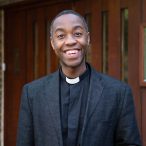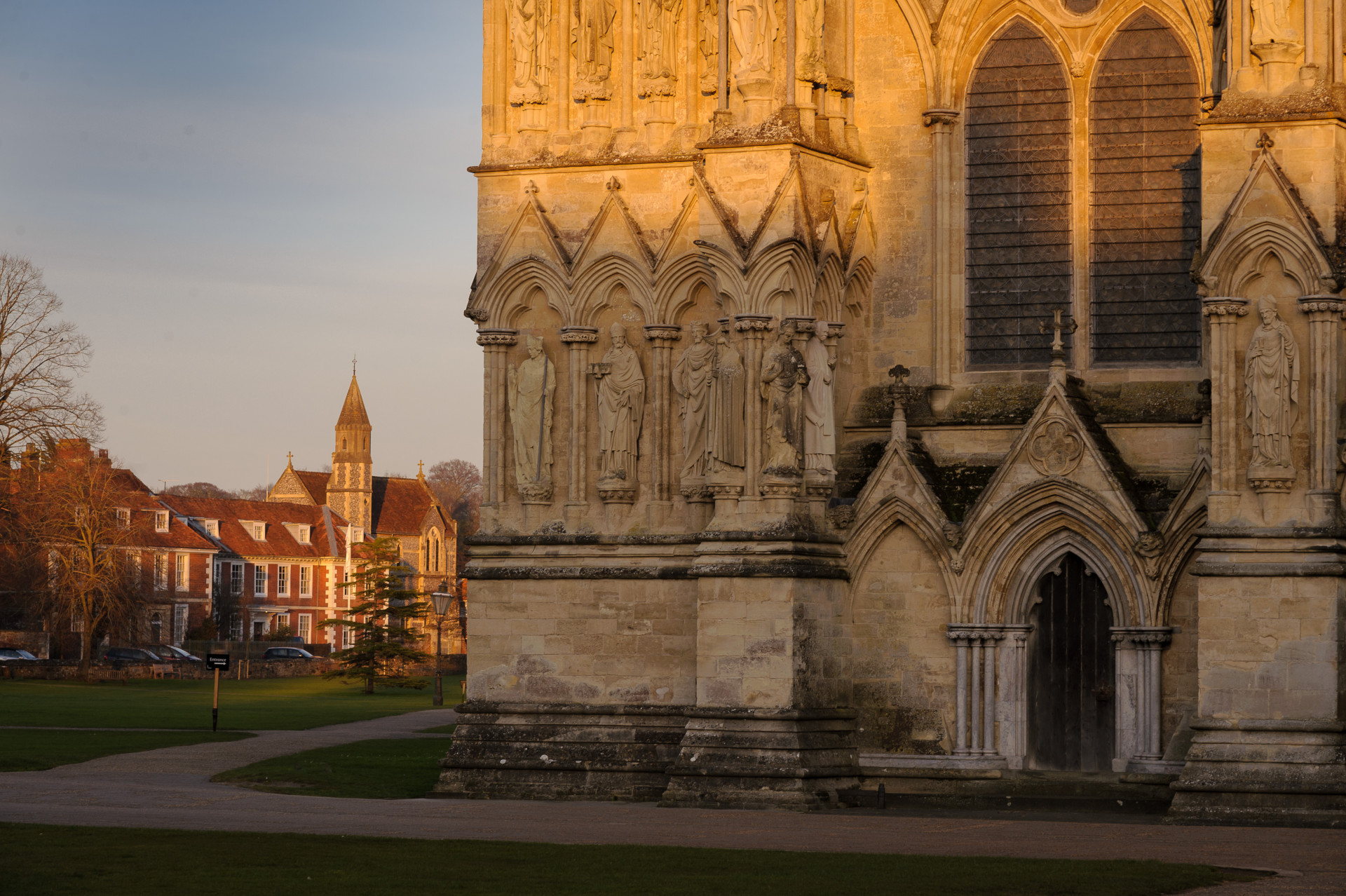 Azariah France-Williams is a Visiting Scholar with the Centre for Encountering the Bible at Sarum College and is a priest at the Church of the Ascension in Hulme (Manchester area). He and his parish are members of the HeartEdge church network based out of St Martin-in-the-Fields and which focuses work around four C’s: congregations, culture, commerce, and compassion. He has been a priest with the Church of England for 10 years. programmes at Sarum College. For the first 6 years he ministered on a group of housing estates in an area of deprivation and his role included community organising, creating social events and supporting people in great need.
Azariah France-Williams is a Visiting Scholar with the Centre for Encountering the Bible at Sarum College and is a priest at the Church of the Ascension in Hulme (Manchester area). He and his parish are members of the HeartEdge church network based out of St Martin-in-the-Fields and which focuses work around four C’s: congregations, culture, commerce, and compassion. He has been a priest with the Church of England for 10 years. programmes at Sarum College. For the first 6 years he ministered on a group of housing estates in an area of deprivation and his role included community organising, creating social events and supporting people in great need.
For the next 4 years, Azariah spent time in a suburban London setting, enjoying coffee, enduring a ParkRun, and roaming the parish hearing stories. Azariah is a gifted and creative minister, writer, and podcaster and contributes regularly to the learning programmes at Sarum College.
We are excited about the release of his new book, Ghostship: Institutional Racism and the Church of England, which is available via SCM Press from 10 July 2020, and at a discounted price of £15.99 until 30 July 2020.
So that you can know more about Azariah and his book, we asked him a few questions:
- Who are you, and where have you come from?
This is a simple and complicated question. I feel like whenever those questions are asked, I have to try and guess what the questioner might mean. We seldom ask questions without a sense of the answer. My sense of identity and place has changed over time: I used to see myself as a Yorkshire man with parents from the Caribbean, but over time I realised many people saw me as a Caribbean person who lived in Yorkshire. Over the years, I have learned that there is a process to be undergone of choosing your own sense of identity in relationship with others.
- What motivated you to write the book Ghost Ship: Institutional Racism and the Church of England?
It was more of a ‘who’ than a ‘what.’ I heard so many stories of black and brown clergy who were finding the Church of England to be a poor employer. The people I heard from had encountered practices and policies which policed their authentic voice and sense of agency. These are people with a history and a heritage of the Church of England in the land of their parents or grandparents. These are people with gifts and needs like we all have. Yet, they have been expected to copy the dominant model of how priesthood is currently expressed, at the cost of losing something of themselves. I felt a duty to tell their stories and bear witness to that experience.
- What are the book’s core messages, and why should we read it?
We are experiencing a worldwide wave of ‘wokeness.’ If you want to learn what that term means, you need to read the book! But seriously, it is a book of stories: stories to unearth the myths as well as challenge our sense of who we are and where we are from. It recognises that stories repeat, and that history misunderstood is misappropriated.
The book considers how the macro impacts the micro by charting the history of a 1985 commission called Faith in the City, authored by the Archbishop of Canterbury’s Commission on Urban Priority Areas, and how this commission’s legacy was downgraded, and largely forgotten since it was published 35 years ago.
- What would you like the world to look like in three years’ time?
In regards to the Church of England, recently the Archbishops said there will be a commission to eradicate racism with the structures and systems of the Church of England. In three years time, I imagine — if history doesn’t repeat itself — we will be in the implementation stage and discovering a new way of being with God and each other.

- What have you most enjoyed about lockdown?
I have really appreciated the way in which our congregations and clergy have been tipped out of their buildings. This process has led, in part, to other places now being recognised as sacred. The walk in the park, a prayer in a quiet room in your house, a Zoom connection with a friend or family member – all of these parts of life have all taken on a new significance. Personally, I have also liked being at home for meetings and being able to wear a clergy shirt with shorts hidden from view.
Azariah and Jayme Reaves will be co-leading a day course titled ‘Facts of Blood and Bread’: Drama and Power in the Gospel of Mark on Wednesday, 21 October 2020. Mark is the Gospel of the Year 2021 and this day will be an opportunity to discuss and be a resource for those who wish to read differently and root the Gospel in lived experience and stories.

Leave a Reply